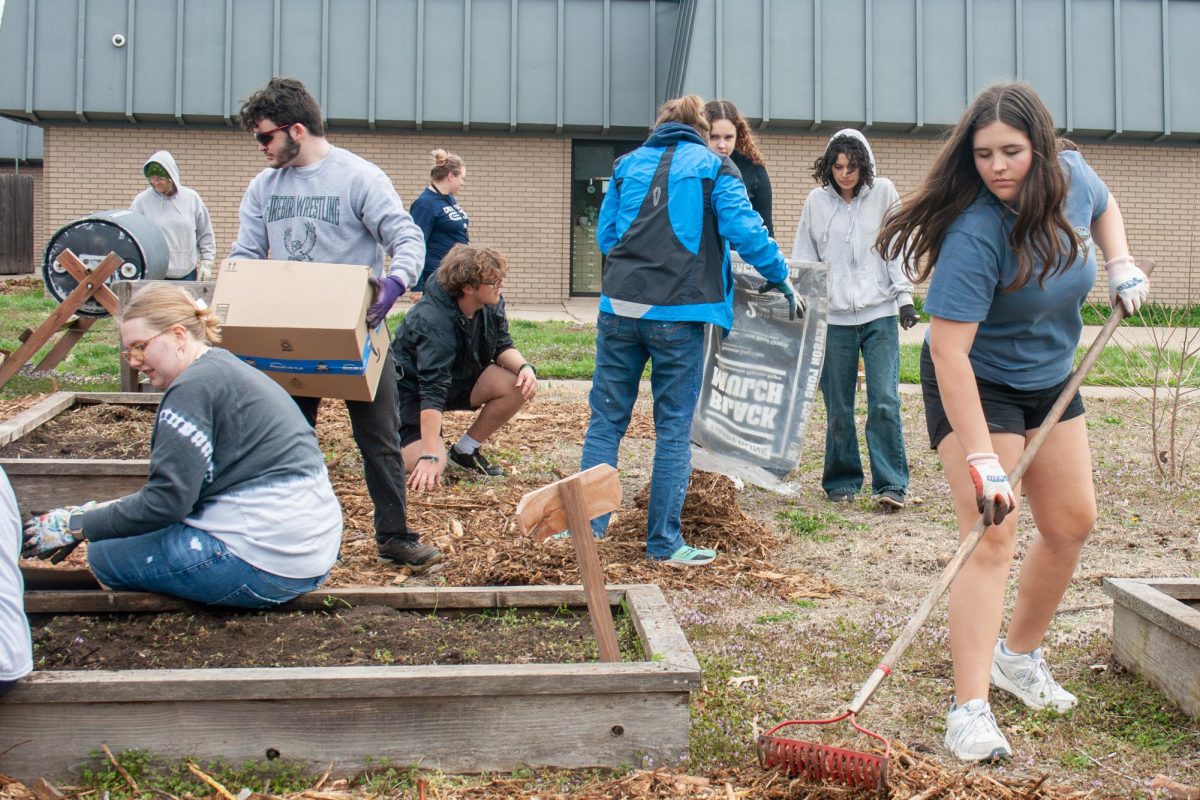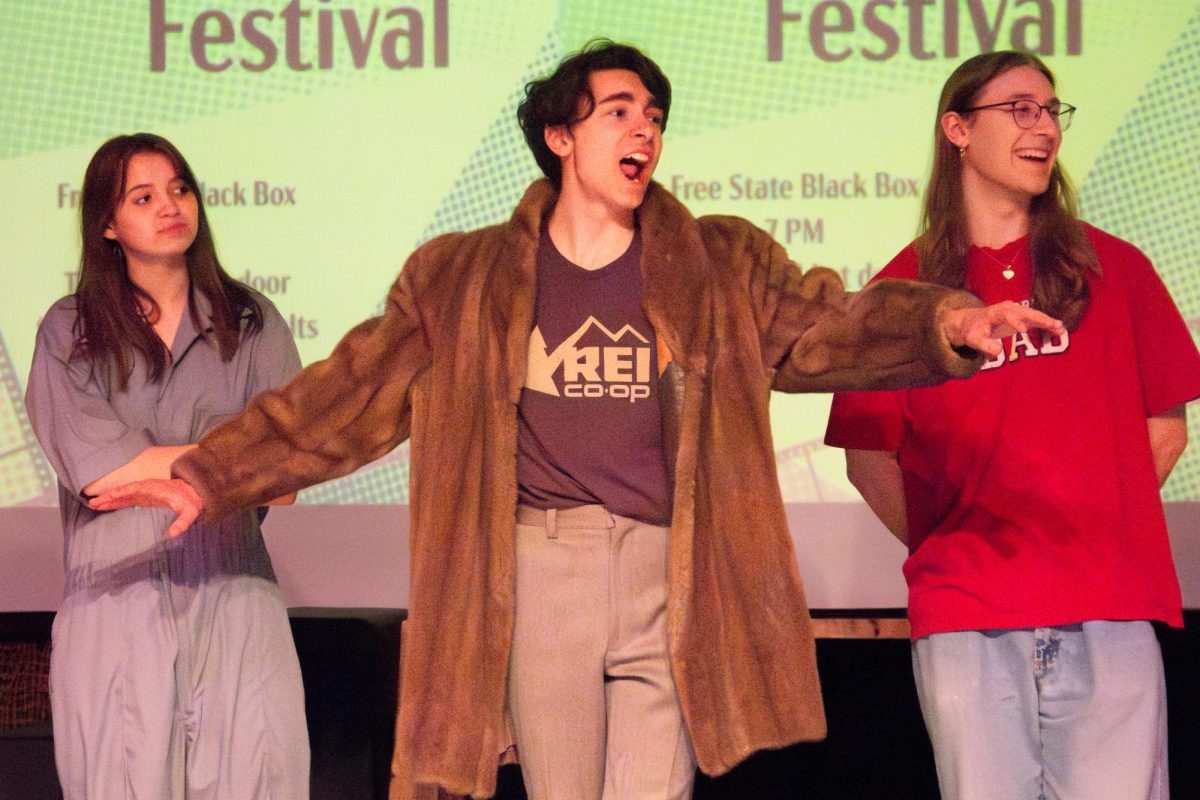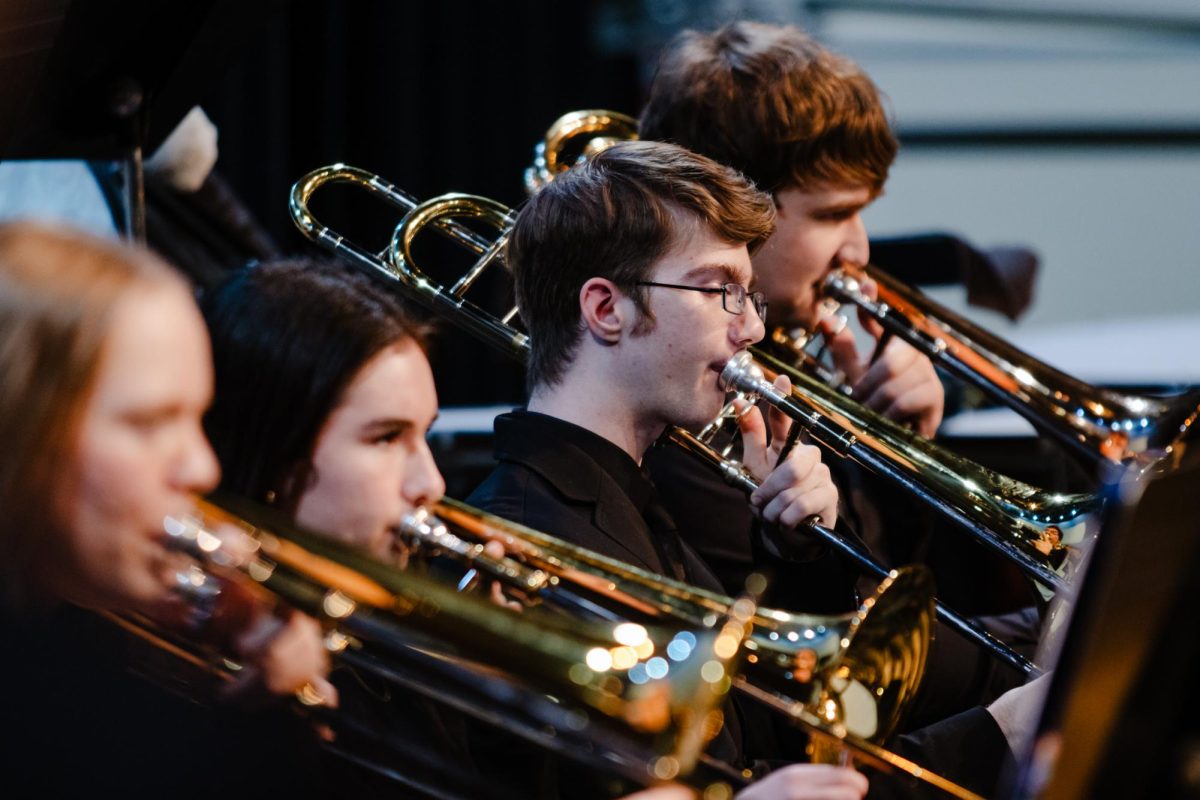Interfaith group Justice Matters presents solutions to racial injustice in schools
April 10, 2017
Photos of tonight’s meeting will be included as soon as they are available.
On March 30, the Lied Center was packed with local religious leaders, churchgoers and curious students and adults, all for an activist organization called Justice Matters.
The interfaith organization was formed in late 2014, consisting of 20 congregations from Lawrence.
Currently, they are targeting five issues: affordable housing, growing incarceration and proposed expansion of the Douglas County Jail, childhood trauma, mental illness treatment and racial injustice in Lawrence schools.
Junior Taylor Royale and freshman Ashton McKnight spoke at the event on their personal experiences with racial injustice at school.
“The racism issue is relevant because a lot of people are unaware of the hurtful and discriminating things they say,” Royale said. “I’m speaking up for those who don’t have a voice and calling those out who say the hurtful things.”
For each issue, the organization has come up with solutions that they believe are best. For the racism issue within the district, they proposed a program called restorative justice.
“Restorative justice programs in schools are spreading across the country,” the Justice Matters website reads. “As an approach to school discipline and student-teacher relationships, it focuses on healing harm instead of simply dispensing consequences.”
To students like Royale, those consequences don’t seem to be taken in the first place.
“I know students who have gone to the administration crying about racism issues and they were sent back to class still crying,” Royale said. “I’ve been dismissed when asking about what they did about one of my attackers and they told me they couldn’t disclose any information due to the [Family Educational Rights and Privacy Act].”
The same was said when a South Middle School teacher was put on administrative leave for allegedly making racist comments in class.
Justice Matters, for each of the five topics, invited local leaders to the March 30 meeting to accept or decline the organization’s solutions.
City Commissioners, Vice Mayor Stuart Boley and hospital leaders confirmed that they would take action, but for the jail and racial injustice issues, no one showed up.
“The school board was invited to participate and they all declined,” Royale said. “It was honestly disrespectful because I feel as though they didn’t even want to listen to what was said and why the proposition was important.”
Regardless of why the administration did not come, to Royale and Justice Matters, administrative action is important to ending racial injustice.
“Administrative action is huge in this because they’re the ones who can put this to an end in a sense,” Royale said. “They tolerate the racism but tell us that they don’t tolerate it. I feel as though I’ve been lied to a lot by them.”
Tonight, April 10, Justice Matters will attend the school board meeting to request an investigation into restorative justice practices.
“We pray our work will result in a more just city for all,” the Justice Matters website reads.








